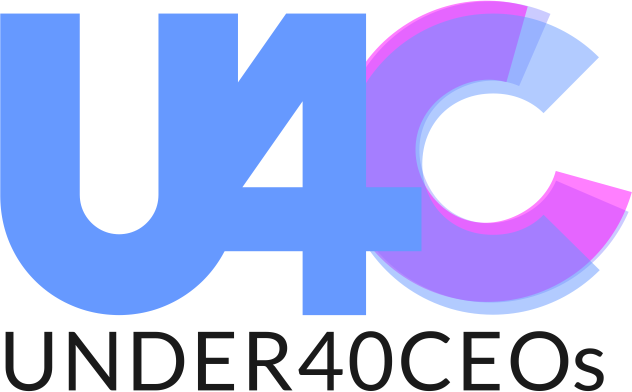Startup funding across Africa has grown by at least 600% since 2017. In 2021, African startups raised more than $4 billion, tripling the $1.43 billion raised in 2020.
You’ve seen certain words over and over again but do you really know what they mean? What does a Series A funding mean? What’s the difference between an angel investor and a venture capitalists.
In this article, we’ll break down on all the terms and their meanings.
The funding types
There are 2 major ways startups can get investors to fund them. There’s equity financing and debt financing.
- Equity Financing
In equity financing, the startup offers investors a chunk of ownership in the startup in exchange for funds. The investor is paying to own a part of the startup, which means that he also owns a share of the profits when the time comes.
Think of it equity financing this way: The startup is a piece of farmland and needs money to buy seeds and farming equipment. In exchange for money, it offers an investor a small portion of the land and during the harvest, the investor gets whatever was planted on his portion of the land.
Startups can sell as much of their equity as they want to.
In equity financing, there’s no obligation for the startup to pay investors back because it’s technically a trade, and the investors are buying ownership. Thus, if the startup fails or makes no profit, the investors get nothing.
Startups can also buy back the ownership shares from the investor and this is called repurchasing or the repurchase option. Investors can also resell their shares to other investors which is one of the ways investors can exit a startup.
Startups can also sell the rest of their equity shares to investors and this is called an exit. In an exit, the startup’s founders are basically selling their shares or ownership stakes in the company to other investors or companies who then acquire the startup.
- Debt financing
In debt financing, there’s no exchange of money for shares or equity.
Instead, the startup collects loans i.e. gets investors to invest in exchange for a return on the capital, and a pre-agreed interest rate.
Continuing with our farmland analogy, rather than paying for a portion of the farm, investors give the farm holders money on the condition that the farm holders pay back what they owe and an agreed-upon interest.
The investors’ profit is not tied to how many shares they have, but how much they agreed on with the startups. In debt financing, there is an obligation for startups to repay; if a startup is unable to pay, whatever collateral they put down will be claimed by the investors.
- Other types of financing
There are a few other types of financing investors and startups may consider.
First, there’s Hybrid financing which is where both debt and equity financing are combined. Last year, a fintech in Namibia raised $100 million with $70 million as equity financing and $30 million as debt financing.
There’s Mezzanine financing—or convertible debt or note—which allows investors to convert their debt financing into equity financing in the event a startup defaults on its debts.
Finally, there’s Bootstrapping which means the startup finances itself through capital laid down by the founders, donations from family and friends, and/or rolled-over profits. Many startups start out with bootstrapping.
The funders
Now that we’ve explored the different ways to finance a startup or a company, let’s talk about the different types of people behind the “investor” tags and why they’re investing.
- Angel investors
Angel investors are private individuals who usually finance startups during their early-stage period. They’re everyday people, usually family and friends, who invest in startups usually in exchange for equity or ownership in the company.
Now, the conventional definition of angel investors explains that angels are usually family members or friends but it’s not always so. Angels can be anyone interested in helping startups get their feet off the ground.
For example, Herconomy, a startup empowering women through financial literacy, raised $600,000 through the community crowdfunding route.
In Africa, several startup founders who have built successful startups are now venturing into becoming angels and helping other startups actualise their dreams. They include Olugbenga “GB” Agboola (Flutterwave), Odun Eweniyi (Piggyvest), and Shola Akinlade (Paystack).
- Private equity firms (PE firms)
Private equity firms are coalitions of investors who invest in private companies i.e. companies that aren’t listed on the stock exchange.
These equity firms use a combination of both debt and equity financing to invest in high growth later-stage or mature companies that are often underperforming. These firms also acquire majority of the equity shares of the startups they invest in, in order to maximise output and growth. An example is Adenia Partners’ majority stake acquisition in Herholdt, a 57-year-old energy company in South Africa.
Presently, there are about 176 private equity firms in Africa that have made over 940 investments in the past decade alone. Examples are South Africa’s Norrsken22, Senegal’s WIC Capital and Egypt’s Sigma Capital Holding.
- Venture capital firms/Venture capitalists (VCs)
Now, Venture Capital firms or VC firms are a subset of Private Equity.
Unlike PE firms though, VCs invest in younger and smaller businesses. It’s also a coalition of investors who finance smaller businesses and startups with equity and/or debt financing. VCs also acquire lesser shares or minority stakes in the startups they invest in.
Most announcements we see are led by VC firms like Novastar Ventures, Oui Capital, Partech Ventures or Ingressive Capital. There are about 780 VC firms in Africa with over 78,000 investments across the years.
The funding stages
Finally, here’s where all the seeds we’ve sown in the past paragraphs come into fruition.
Under this heading, we’ll explore the funding stages that the investors we’ve listed above participate in.
- Pre-seed
“Founders typically float a startup with personal funds, before seeking out investments from family, friends or external well-to-do individuals known as angel investors. All of this broadly falls under the pre-seed funding stage,”
Alexander Onukwe, TechCabal
As the name implies, the pre-seed stage consists of a startup’s first push to raise funds to get its operations running. In this stage, you won’t see many VCs or PEs because the startup is at its earliest stages and the only people willing to take a chance on it are angel investors.
The sizes of seed stages can vary, depending on the startup. For example, Herconomy’s pre-seed was $600,000 while Nestcoin, a blockchain startup out of Nigeria, raised $6.5 million in its pre-seed round.
Conventionally, VCs don’t participate in pre-seed rounds but that’s slowly changing on the continent as more early-stage startups bring innovative solutions to the continent’s most pressing issues.
- Seed
Seed stages come after the pre-seed stages, and they’re usually when the startup has built enough traction to attract institutional investors like VCs or PE firms.
As in the pre-seed stage, there’s necessarily no maximum or minimum amount for what qualifies as a seed. It all depends on the startup.
In 2019, however, Palmplay raised the largest seed funding Africa has seen so far with $40 million.
- Series A B C D E F to infinity…
Here’s what you need to keep in mind about Series A, B, C… funding stages: the letter of the alphabet attached to a funding round expresses the number of times that a startup has raised external funding. Essentially, the naming helps differentiate each new funding round from the previous ones.
In Series A and B funding, startups have entered their target market but need financing to build relationships with customers and further develop their business models.
Every round after a Series A is not so different in terms of deal structure. Most startups at these stages are looking to expand into new markets, launch new products or release new features. From Series C upwards, startups are looking to maximize profitability and growth, expand into new markets and push out new products. Of the 8 African unicorns—startups valued at over $1 billion—6 attained unicorn status during or after their Series C rounds.
It is, however, important to note that most African startups don’t make it past the Series B funding stage. The World Economic Forum states that only 8% of startups on the continent make it past Series B and this is due to a number of reasons including lack of funding and operational failure.
The good news, however, is that more startups are popping up and solving problems across the board. The number of African startups that have been able to secure funding has increased from 55 startups in 2015 to 359 startups, a 552.73% growth. What this means is an increased chance of solving African problems.
Funding an essential factor of business, it’s not only having it that matters but how to get it, how to manage it among others and at the Under 40 CEOs Institute, we break down on this in a module of our course ‘Starting A Business In Africa’.
Enrolling in our Institute opens you up to a community of successful African business leaders and to benefits of various kinds, one of them being funding. Email us at [email protected] to enroll.










